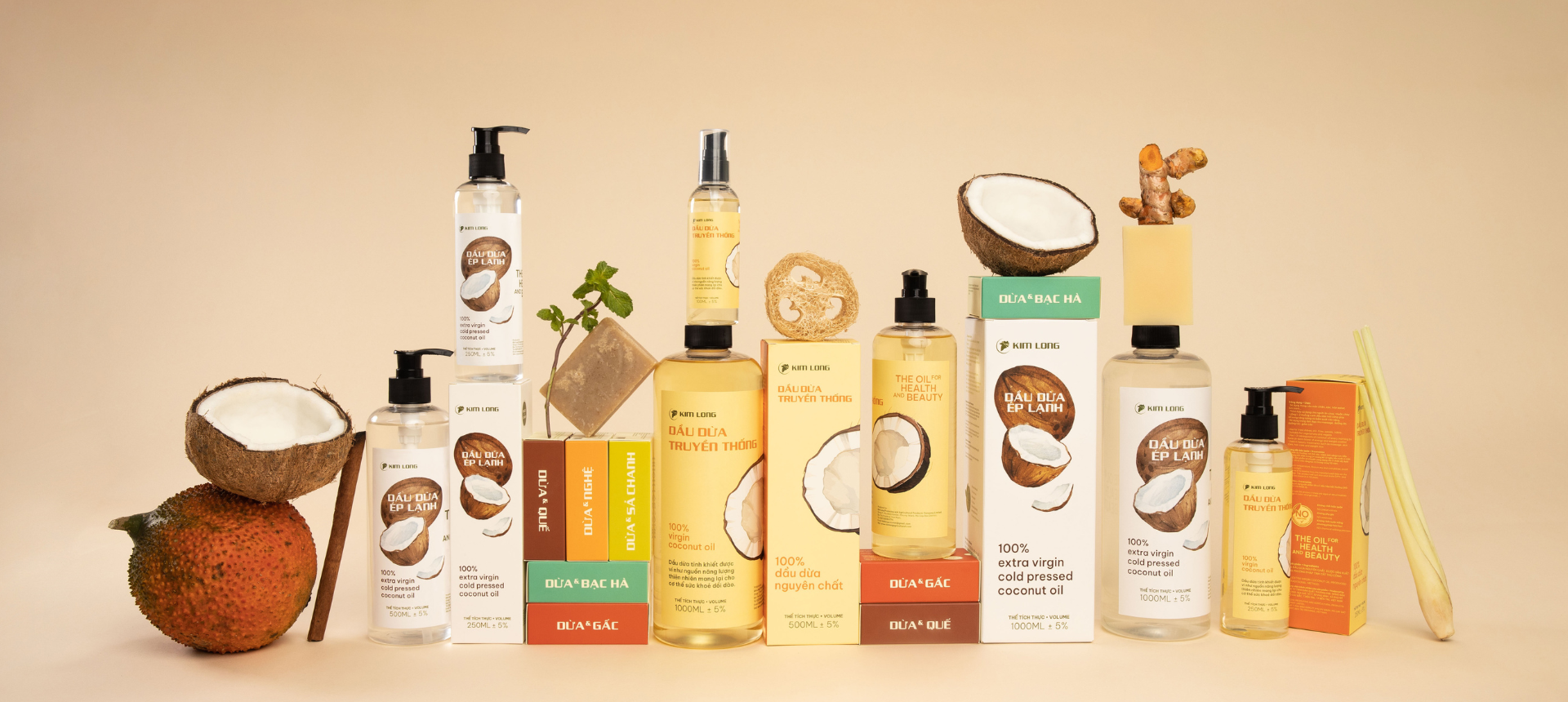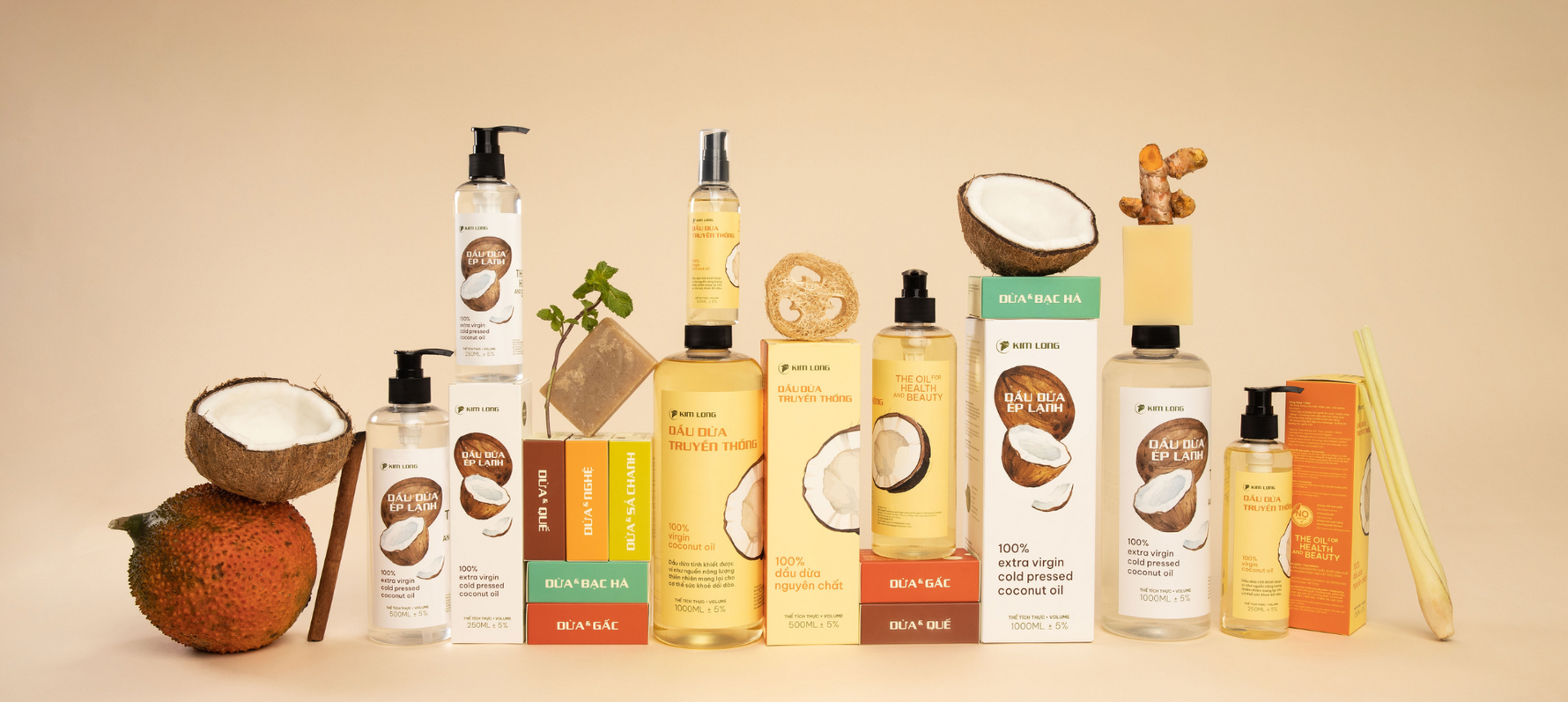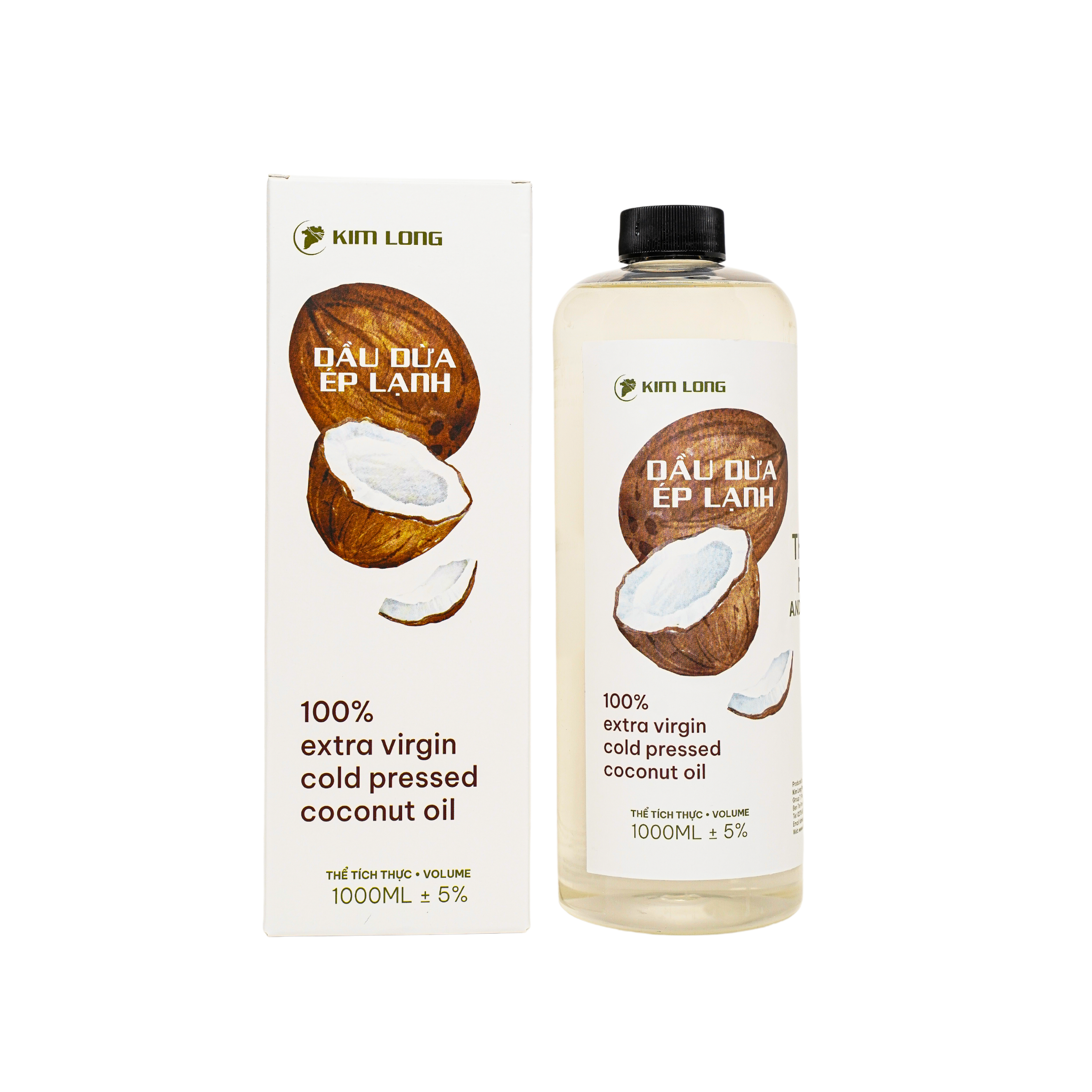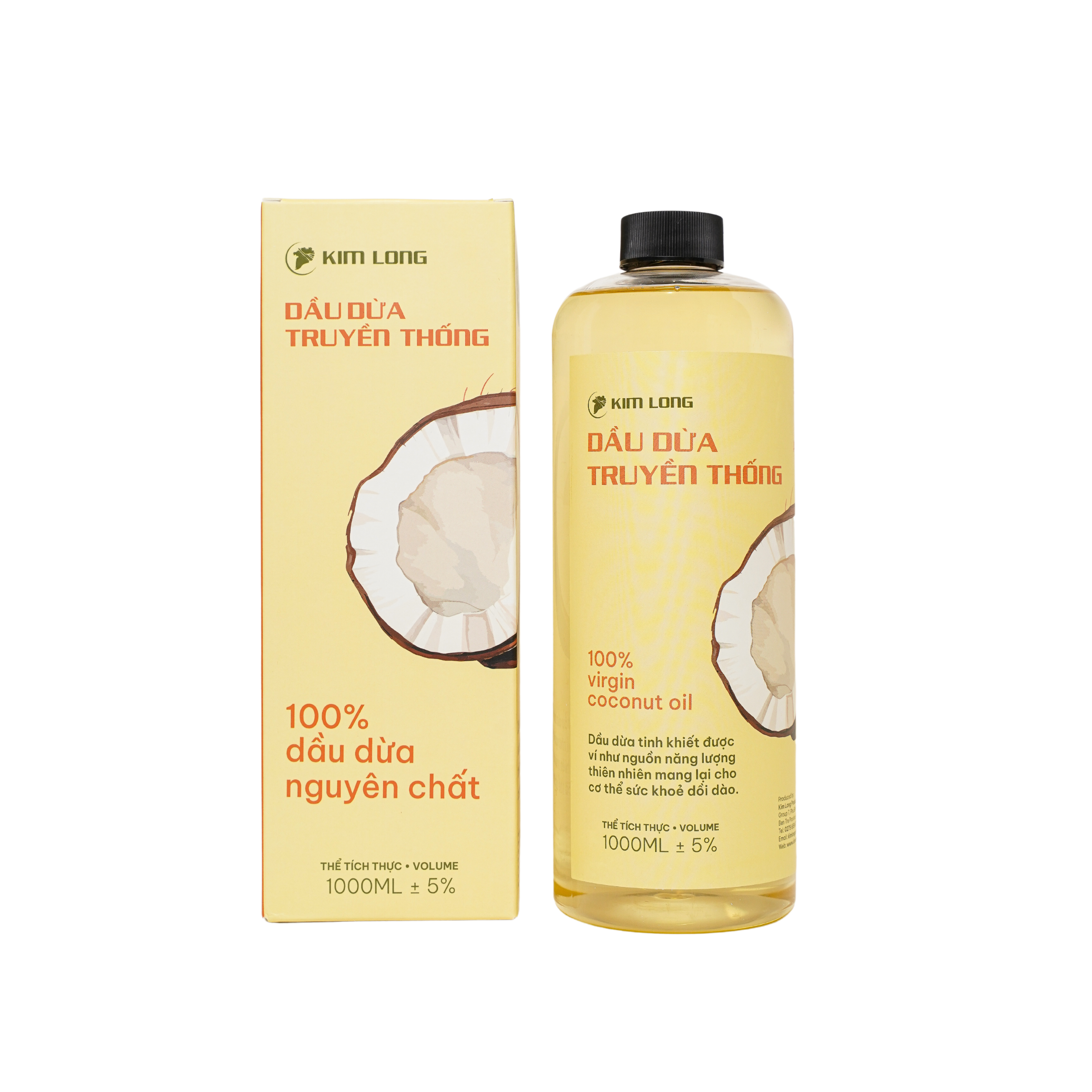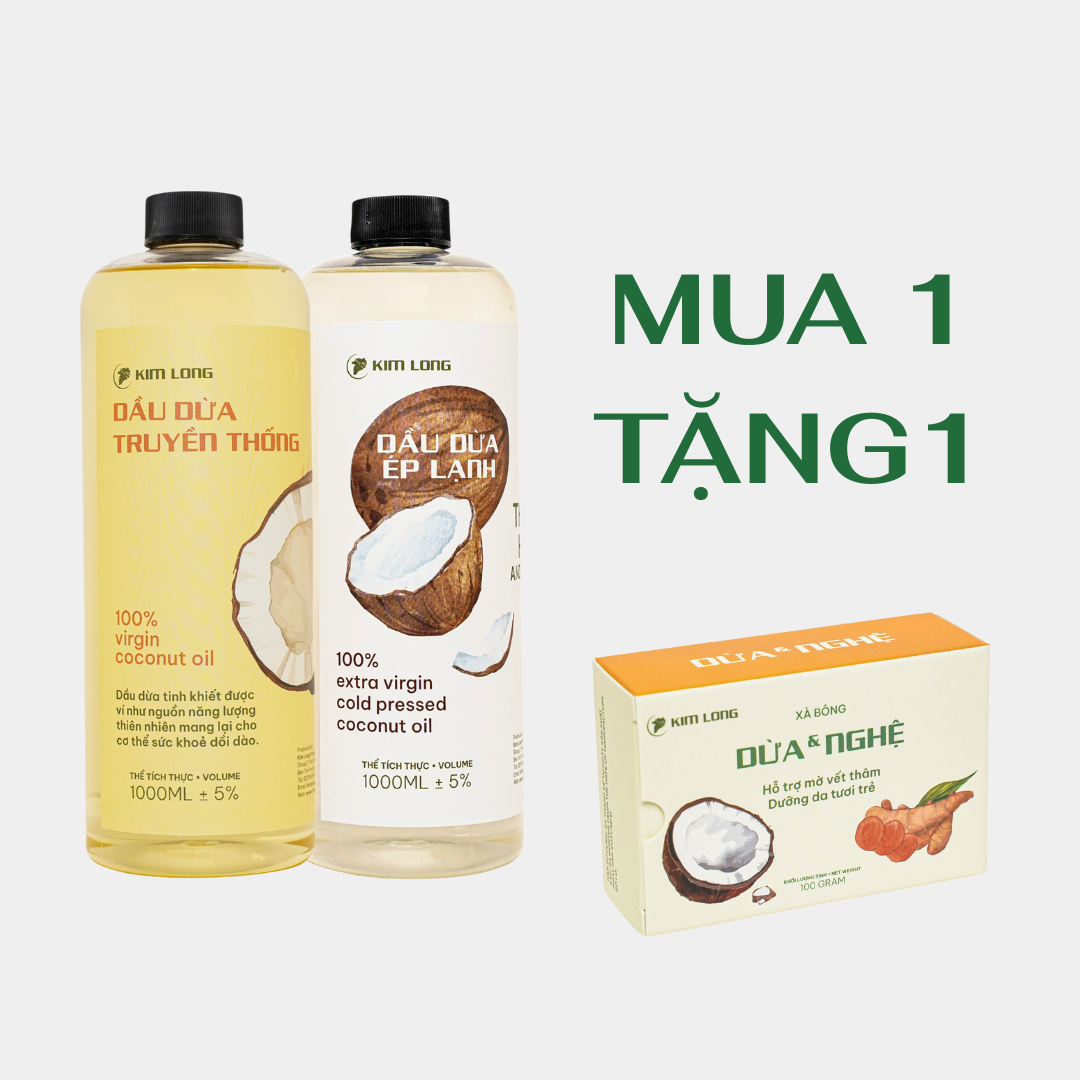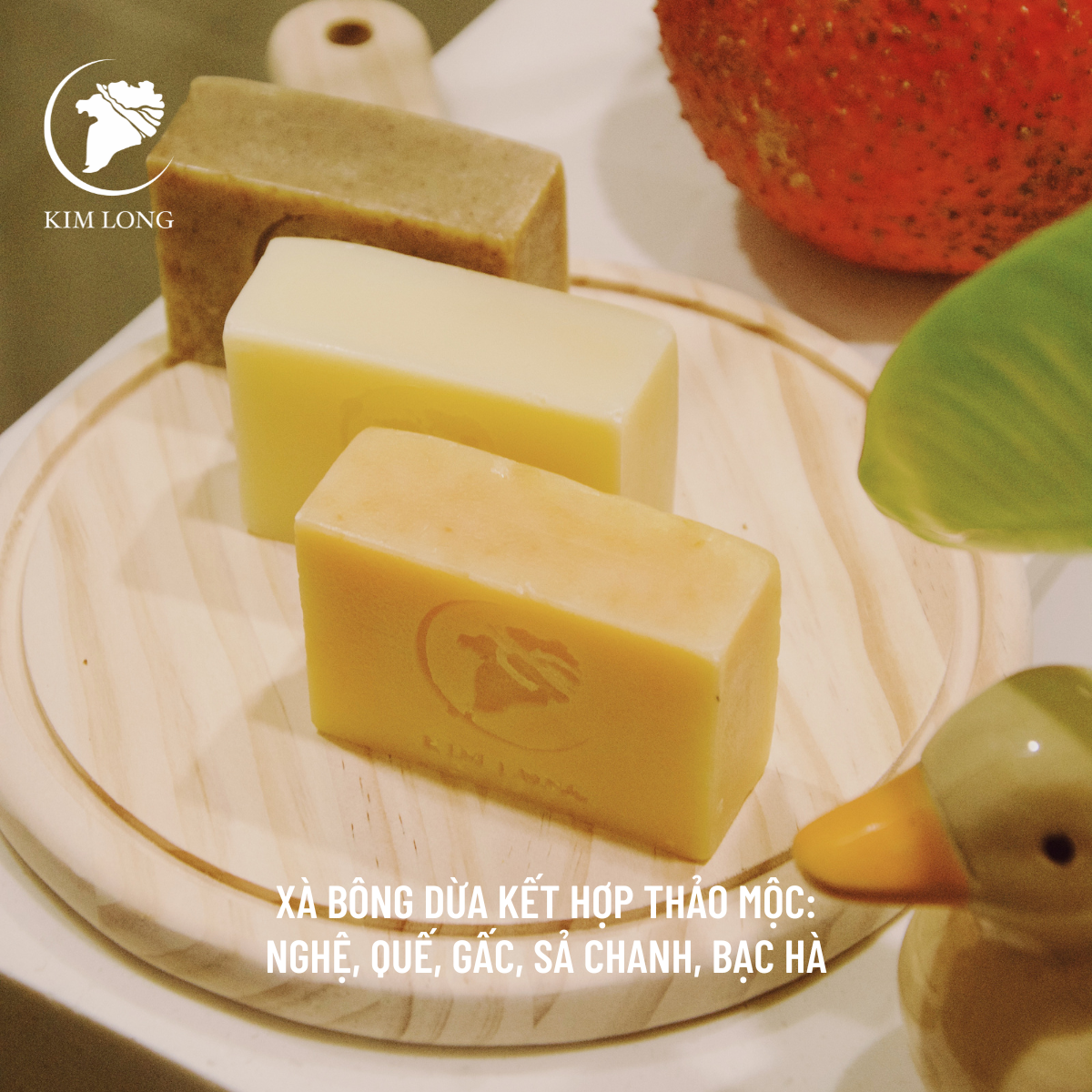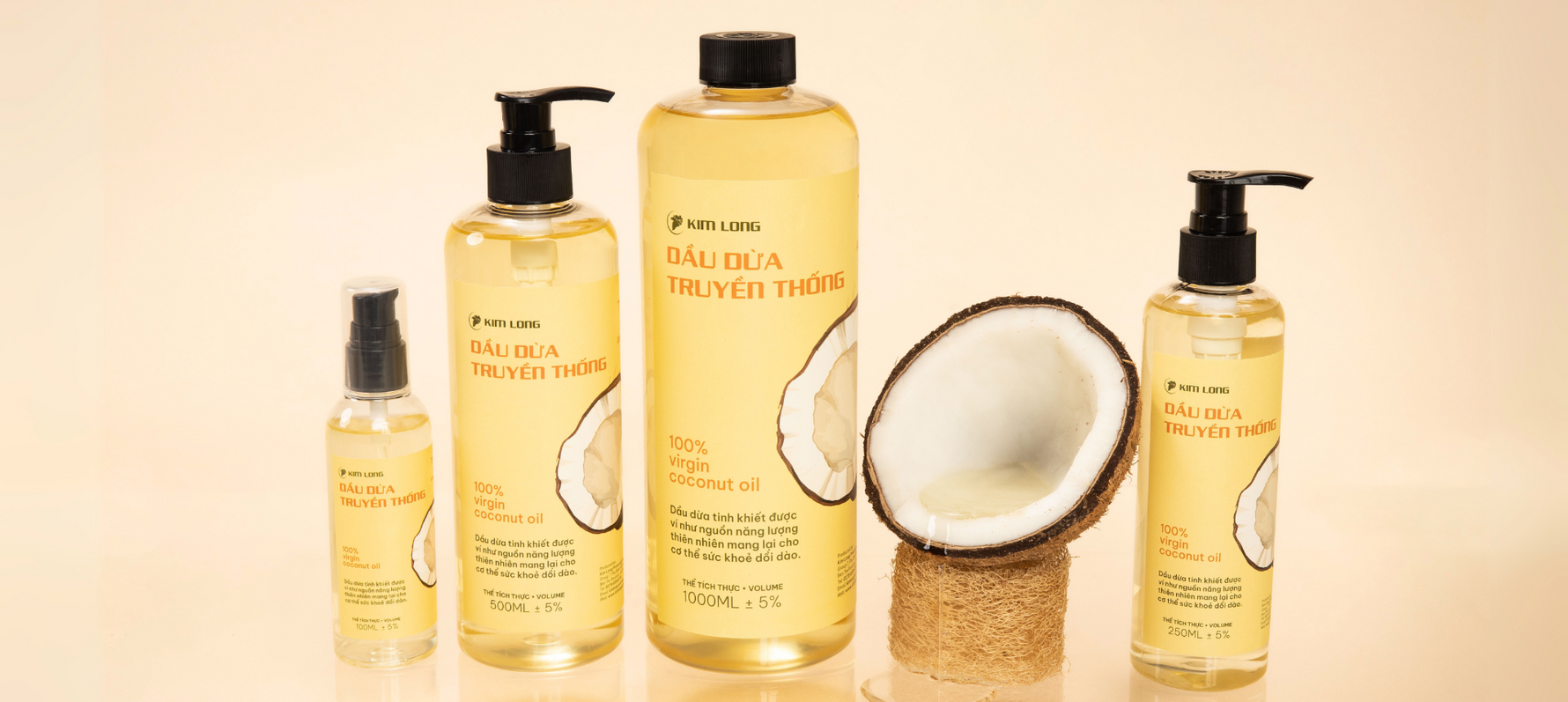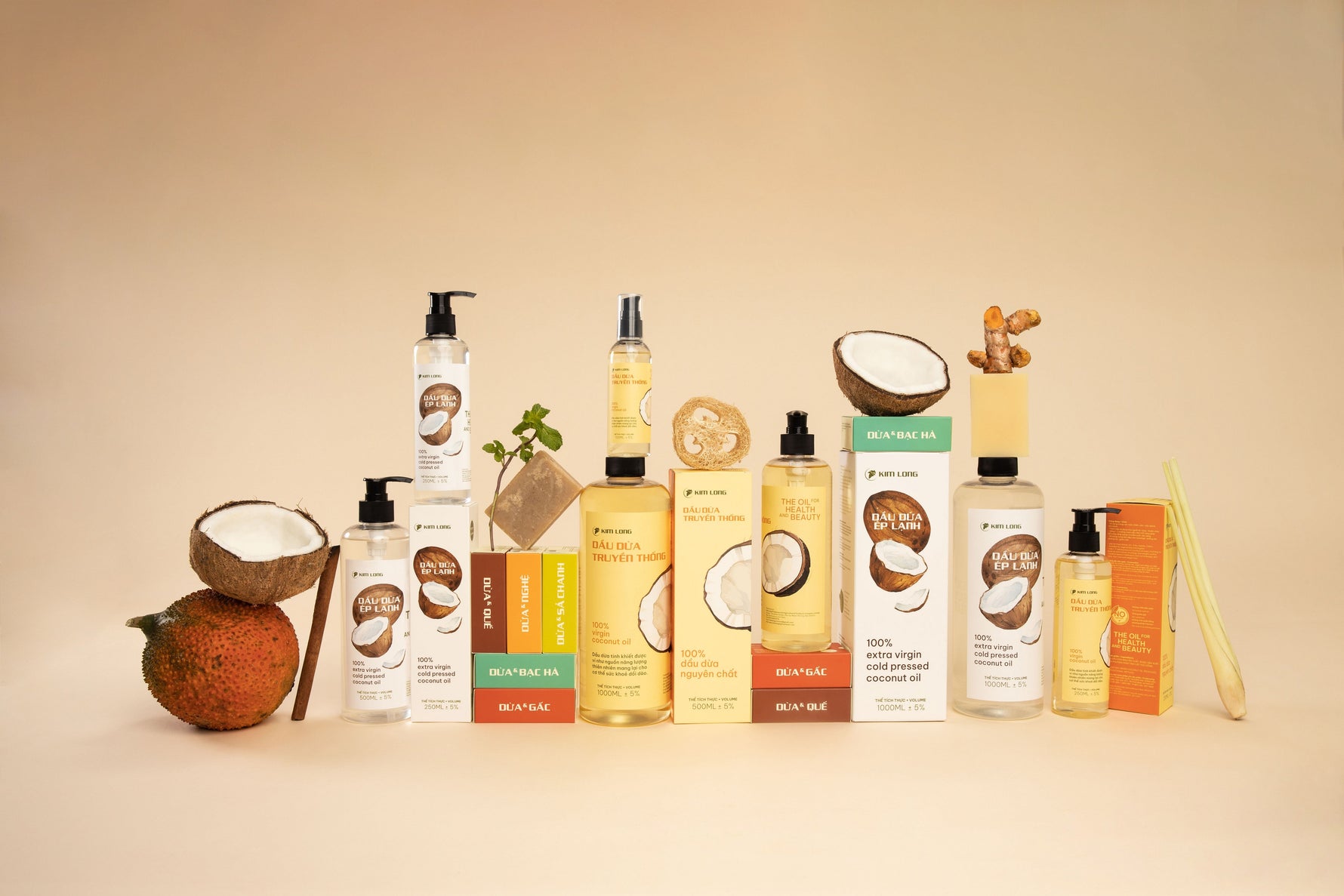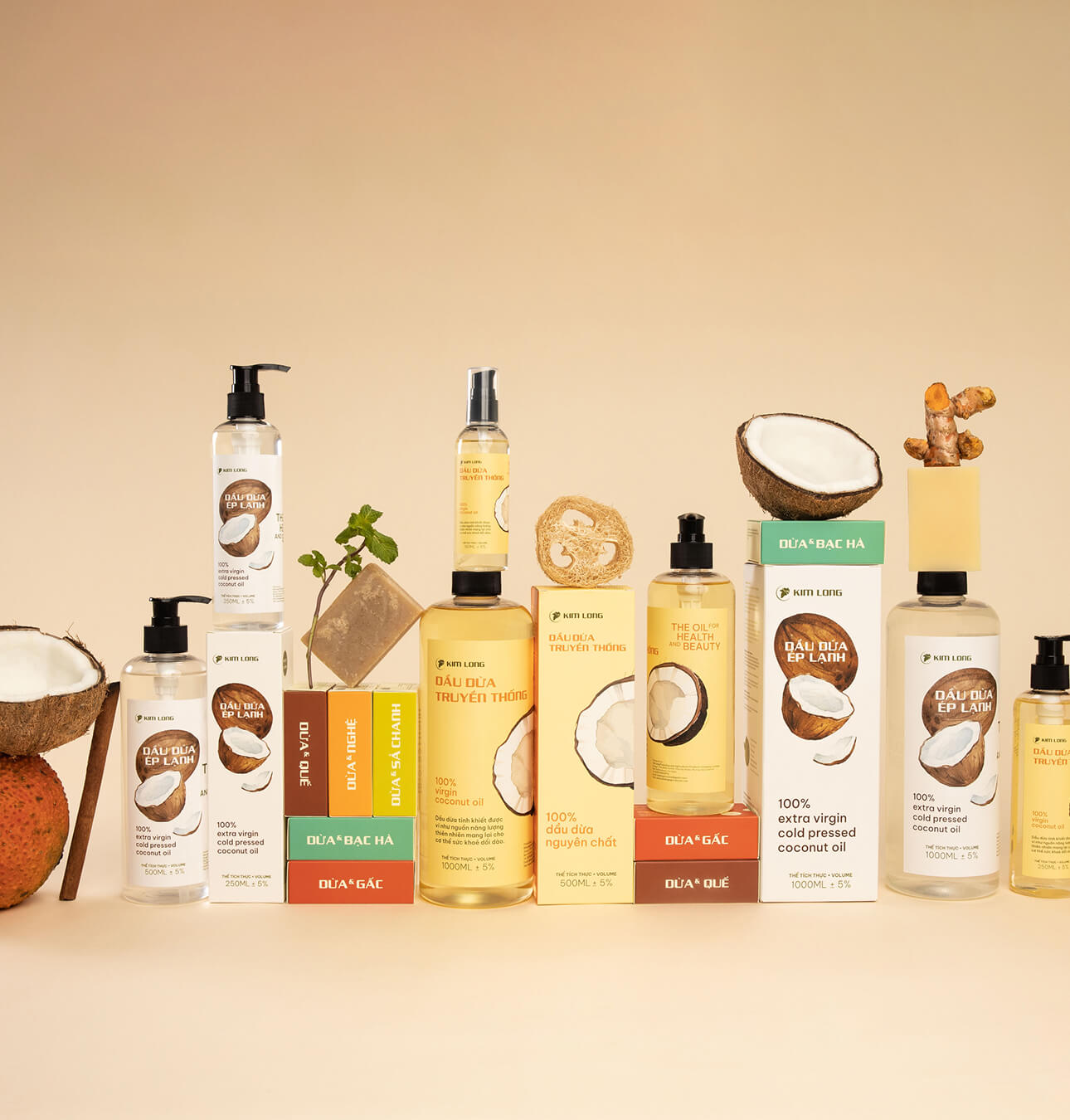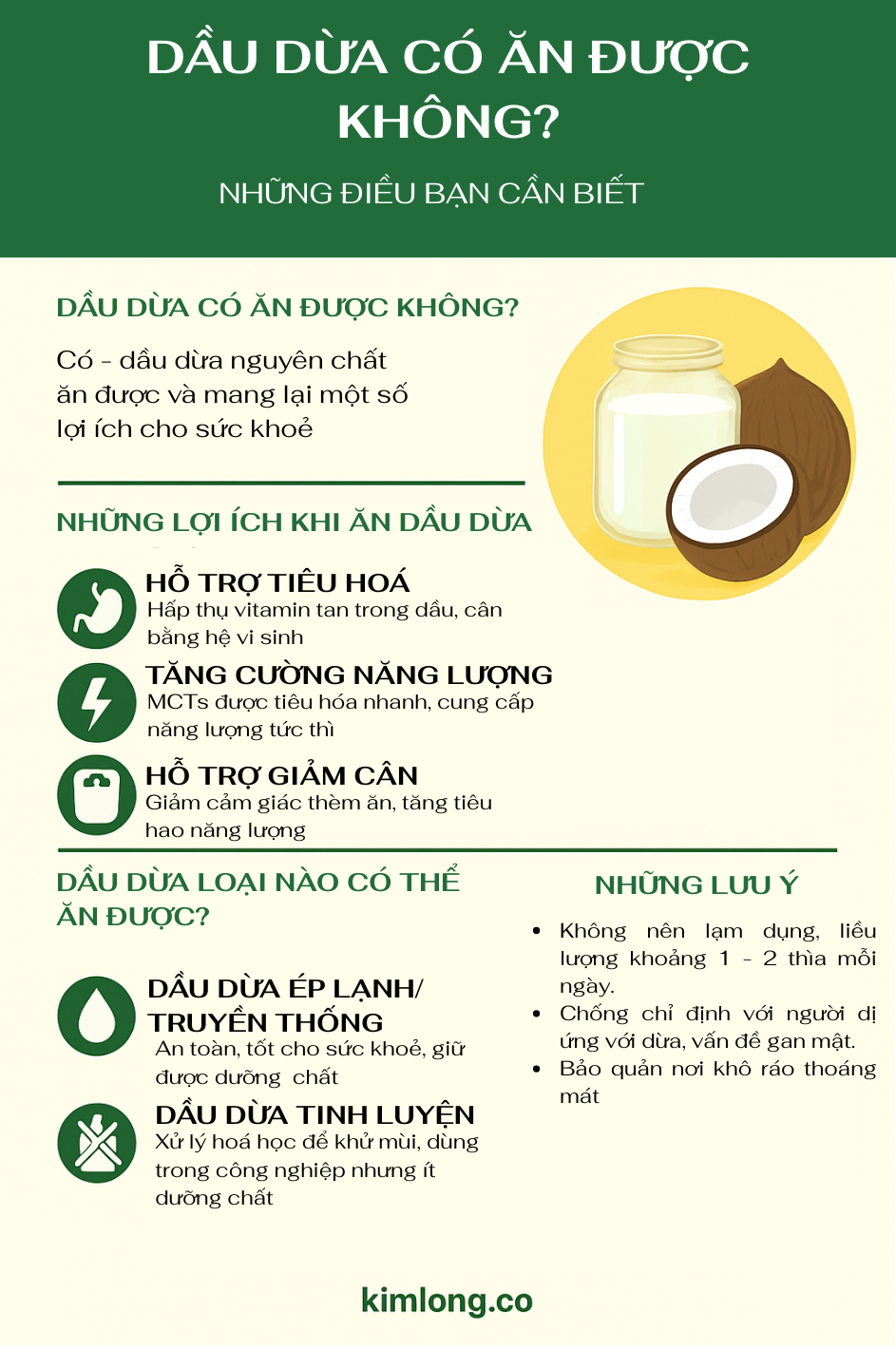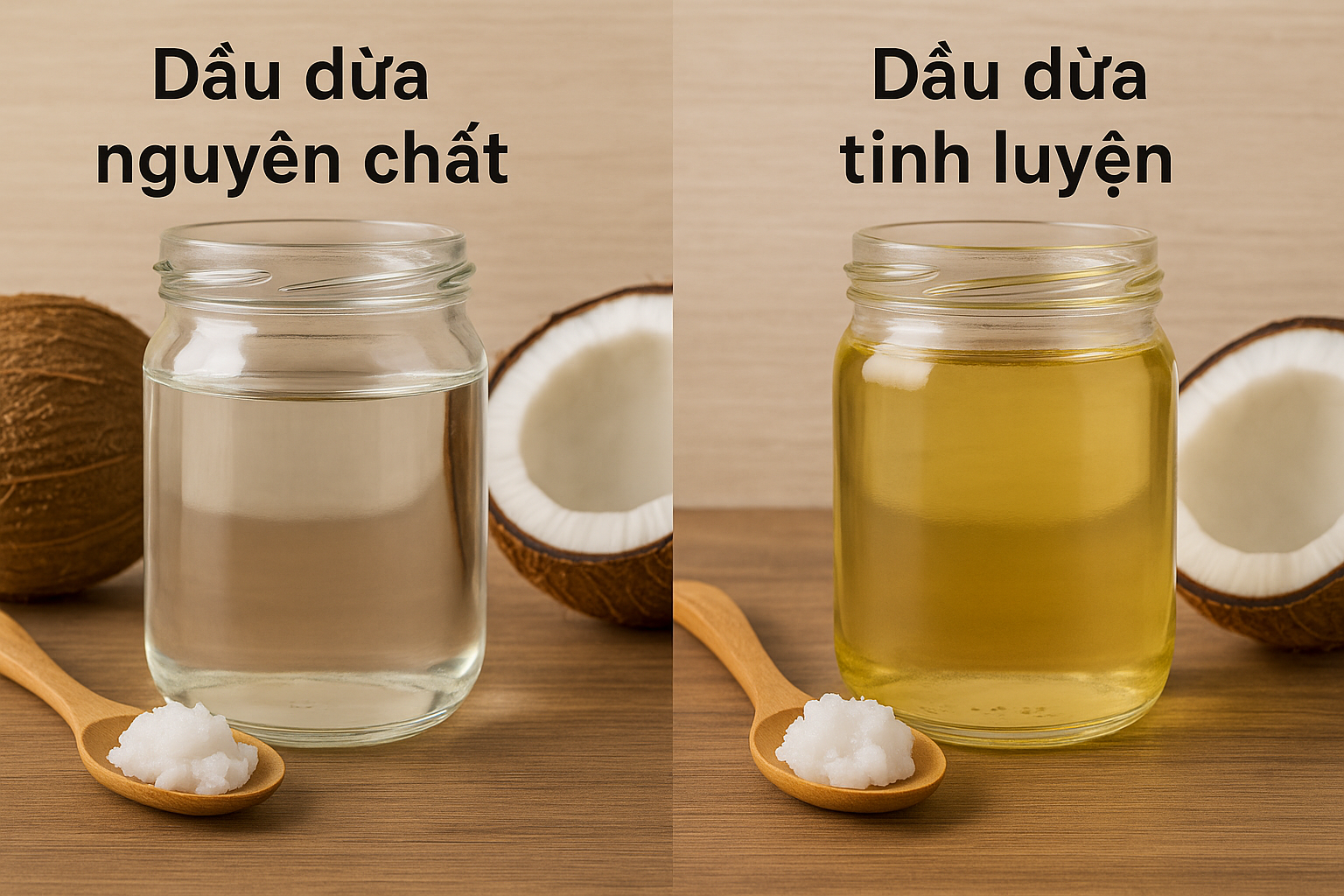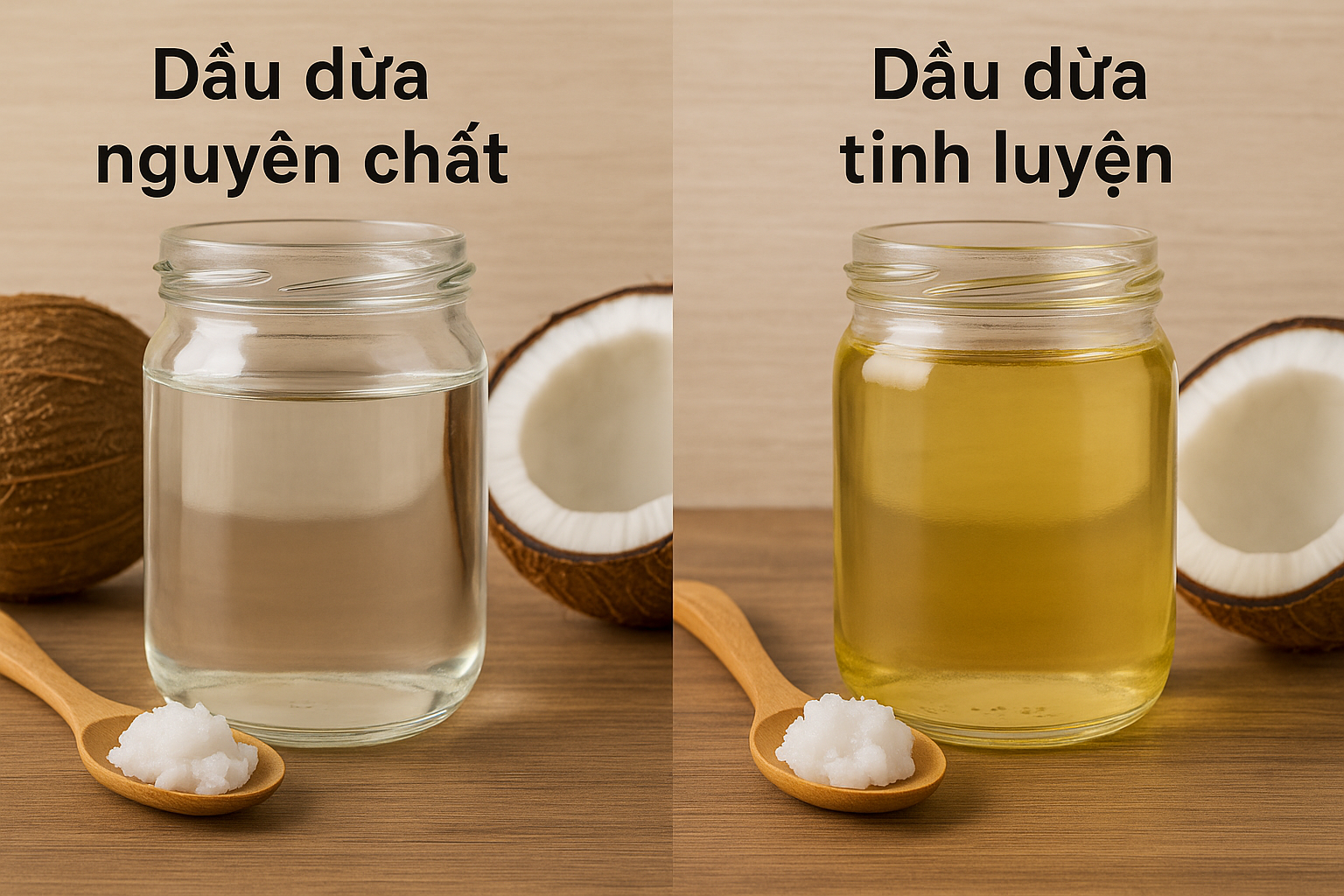
What is Virgin Coconut Oil? Easily Distinguish It From Refined Coconut Oil
What is Virgin Coconut Oil? Easily Distinguish It From Refined Coconut Oil
Coconut oil has become a familiar ingredient in the kitchen and beauty corner of many Vietnamese families. However, there are two popular types on the market: virgin coconut oil (VCO) and refined coconut oil (Refined Coconut Oil) . How are they different and how to distinguish them? As an experienced coconut oil producer, I will help you clarify this issue.
Virgin Coconut Oil (VCO)
Virgin coconut oil , as the name suggests, is the oil extracted from fresh coconut meat (fresh coconut meat) , through mechanical or natural methods, with little or no use of heat and without chemical refining .
Main production process:
-
Natural fermentation method: Fresh coconut milk is left to ferment for about 12-16 hours, the oil layer will float to the top and be collected.
This method gently breaks down the carbon bonds in the oil structure, increasing its ability to penetrate the skin, hair and body, thereby allowing medium-chain fatty acids such as Lauric Acid, Capric Acid, Caprylic Acid - famous for their antibacterial, anti-inflammatory and cell-nourishing properties - to be absorbed faster and more effectively. At the same time, the oil retains its vitamin E, polyphenols and natural antioxidants intact.
-
Centrifugal method: Fresh coconut milk is pressed from coconut meat, then a high-speed centrifuge is used to separate the oil from the water and coconut pulp.
-
Cold-Pressed method: Fresh coconut meat is grated, dried at low temperature (to retain maximum nutrients) and then put into a mechanical press to extract the oil.
- Traditional heating method (Wet Milling): Fresh coconut milk is gently heated over low heat until the water evaporates, the oil is collected. This method can make the oil slightly yellow and has the characteristic sweet aroma of coconut oil.
Characteristics of pure coconut oil:
-
Flavor: Has a fragrant, characteristic smell of fresh coconut. Rich, pure taste.
- Color: When in liquid form (above 24-25°C), the oil is clear like water. When solidified (below 24°C), the oil is pure white or opaque like wax.
-
Ingredients: Retains many valuable nutrients such as lauric acid, vitamins (especially vitamin E), minerals and antioxidants (polyphenols) due to being less affected by high temperatures and chemicals.
- Smoke Point: Lower than refined oil, around 177°C (350°F).
So, What Is Refined Coconut Oil?
In contrast to virgin coconut oil, refined coconut oil is usually produced from dried coconut meat (copra) . Copra is often not as hygienic as fresh coconut meat, and can be contaminated with dust and mold during the drying process. Therefore, the oil pressed from copra must undergo the refining, bleaching, and deodorizing process – abbreviated as RBD – to remove impurities, unpleasant odors and make the oil usable.
Production process:
- Copra Oil Pressing: Dry coconut meat (copra) is pressed by machine to obtain crude oil. This crude oil is usually pale yellow to brown in color, has an unpleasant, pungent odor and contains many impurities.
- Refining: Crude oil is treated with chemicals (such as lye) or physical methods (using clay) to neutralize free fatty acids and remove impurities.
- Bleaching: The oil is filtered through bleaching clay to remove the pigments, making the oil clearer and lighter in color.
- Deodorizing: The oil is treated with high temperature steam and vacuum to completely remove the natural coconut smell and taste. Some processes may use chemical solvents.
Characteristics of refined coconut oil:
- Taste: Almost odorless or very light odor, no characteristic coconut flavor.
- Color: Usually lighter yellow or transparent if the bleaching process is good. When solidified, it is also white but sometimes not as pure white as pure oil.
- Ingredients: Still retains the medium chain fatty acid (MCTs) such as lauric acid but the content is lower than virgin coconut oil, vitamins, minerals and antioxidants are often very low or absent due to high heat and chemical processing.
Quick Comparison Chart: Virgin Coconut Oil vs Refined Coconut Oil
|
Criteria |
Virgin Coconut Oil (VCO) |
Refined Coconut Oil |
|
Ingredient |
Fresh coconut rice |
Copra |
|
Production process |
Fermented, Cold Pressed, Centrifuged, Hand-Cooked (less processed, no chemicals) |
Refine, bleach, deodorize (RBD) |
|
Color (liquid) |
Transparent |
Color yellow to brown |
|
Color (winter) |
Pure white/opaque white |
Ivory white, sometimes not as white as VCO |
|
Taste |
Fragrant, characteristic coconut flavor |
Odorless, tasteless or very mild |
|
Smoke point |
Lower (~177°C) |
Higher (~204°C - 232°C) |
|
Nutrition |
Rich in vitamin E, antioxidants |
Less vitamins, antioxidants |
|
Lauric Acid & MCTs |
High content |
Still there, but reduced |
|
Price |
High price |
Cheap |
|
Common Use |
Eat raw, mix in salad, skin/hair care, low temperature cooking |
In food and cosmetic industry |
Which Type of Coconut Oil Should You Choose?
Choosing between virgin coconut oil and refined coconut oil depends entirely on your intended use and personal preference :
- If you want to get the most out of coconut oil's natural nutrients, use it for skin care, hair care, eating it directly, making smoothies, mixing it in salads or cooking dishes that don't require too high a temperature and love the taste of coconut: Choose virgin coconut oil (VCO)
- If you need an oil for industrial confectionery and cosmetics production but don't want the finished product to smell like coconut, or simply want a more economical option: Refined coconut oil is the right choice.
Note when buying:
- Read product labels carefully: Look for terms like "Virgin", "Extra Virgin", "Cold-Pressed" for virgin oil, or "Refined", "RBD" for refined oil.
- Check ingredients: Make sure there are no unwanted additives or preservatives.
- Choose a reputable brand: Prioritize manufacturers with clear processes and quality certification (if any).
Conclude
Understanding the difference between virgin and refined coconut oil will not only help you be a smart consumer, but will also ensure you use the right oil for the right purpose, maximizing your health and cooking benefits. Virgin coconut oil retains its natural flavor and nutrients, while refined coconut oil is a more practical choice for high-heat cooking and when you don’t want the coconut flavor.
Hopefully this information will help you feel more confident when choosing and using coconut oil! If you have any other questions, don’t hesitate to ask.
Wish you always healthy and have the best choices for yourself!

